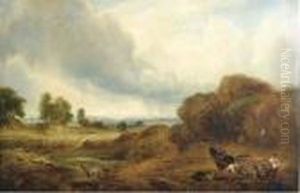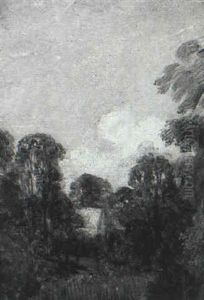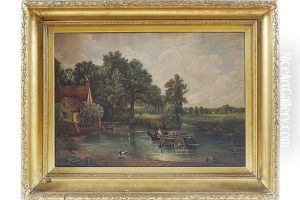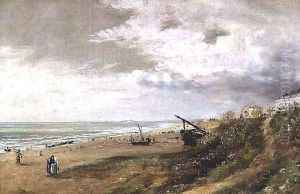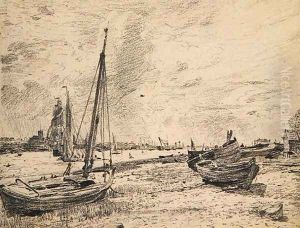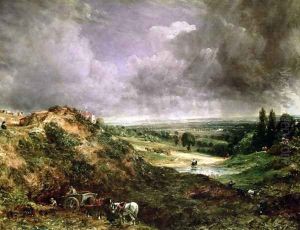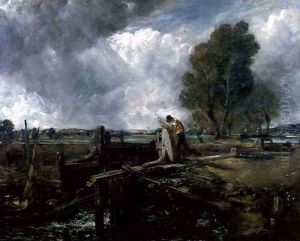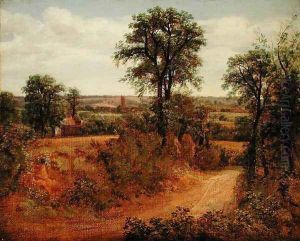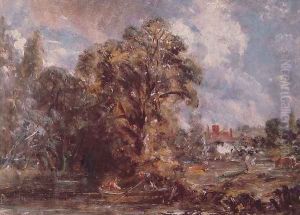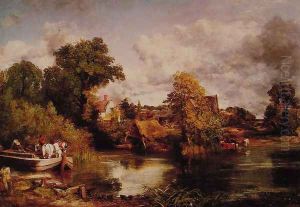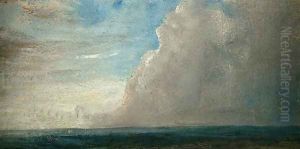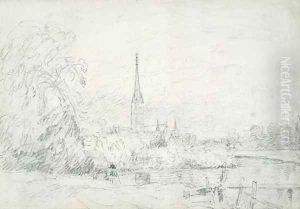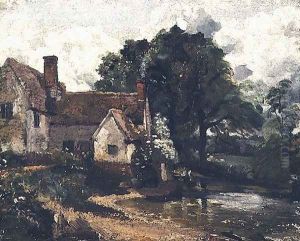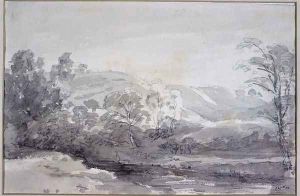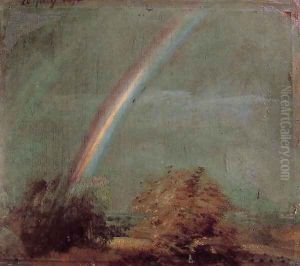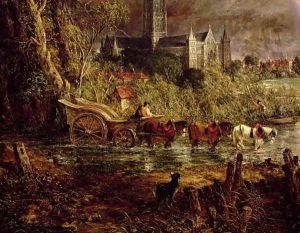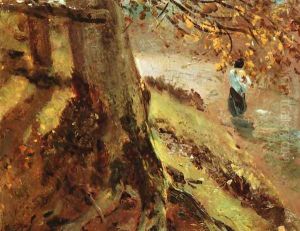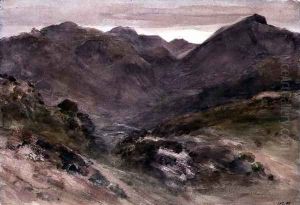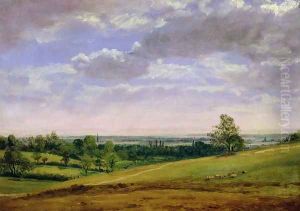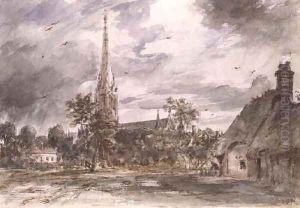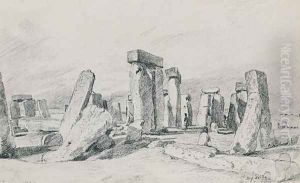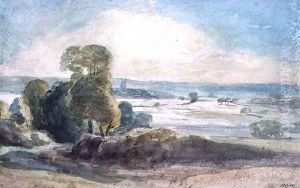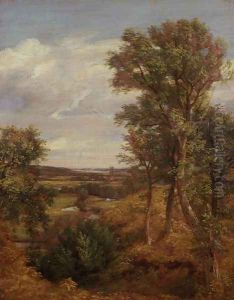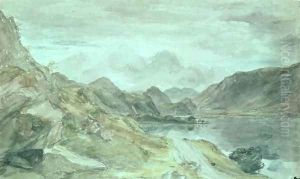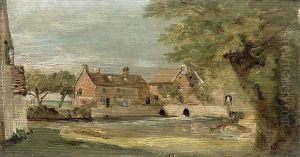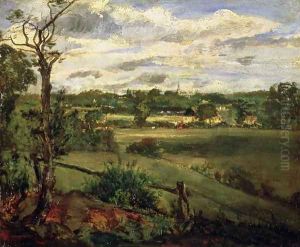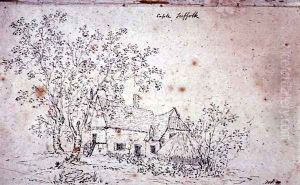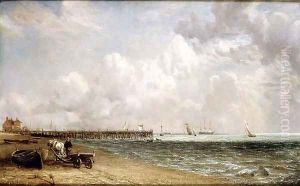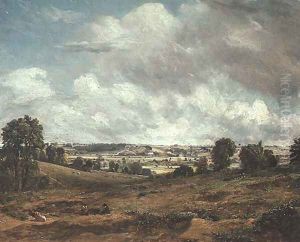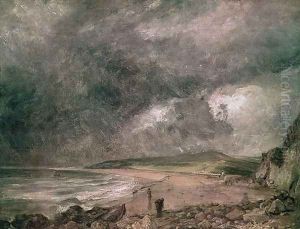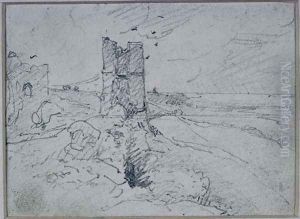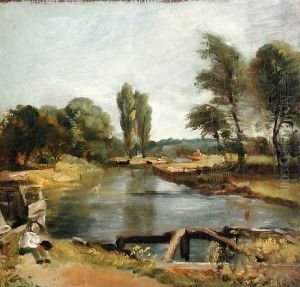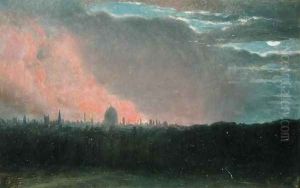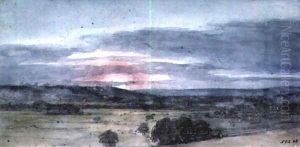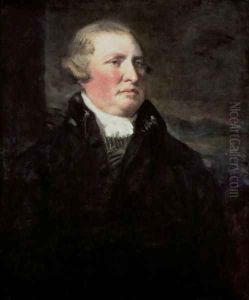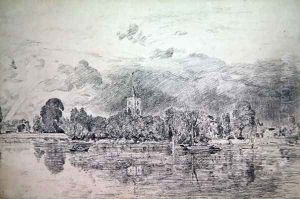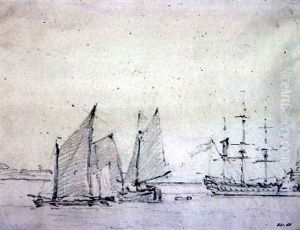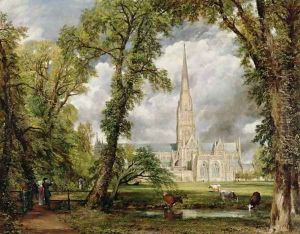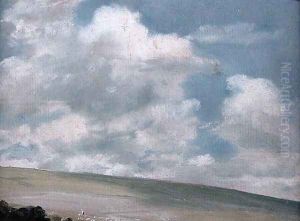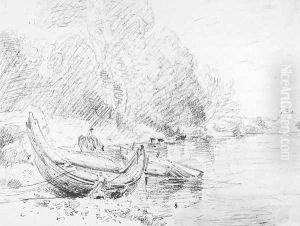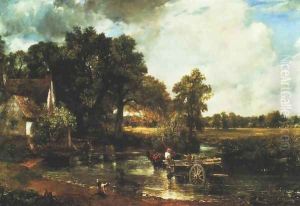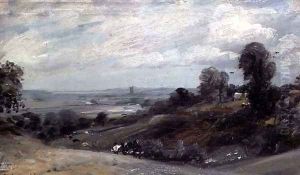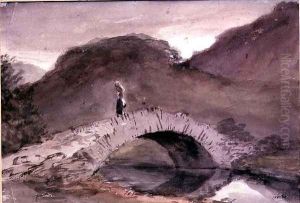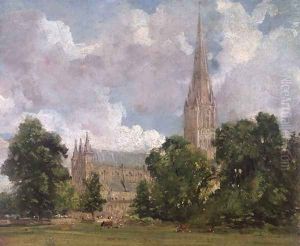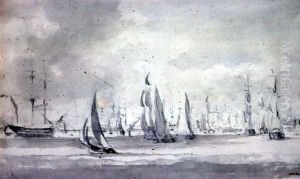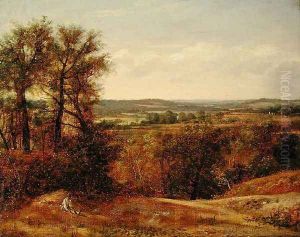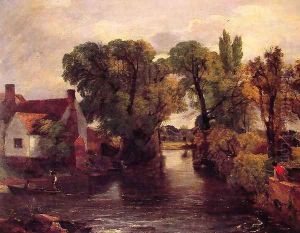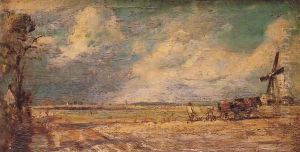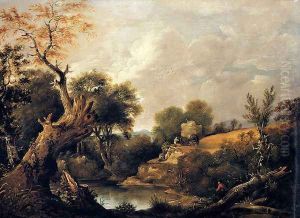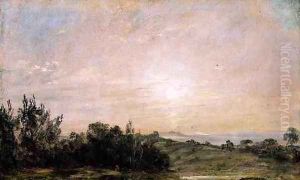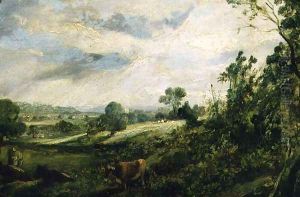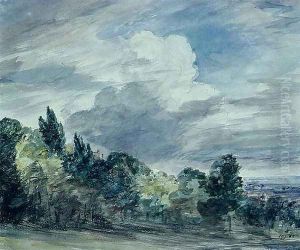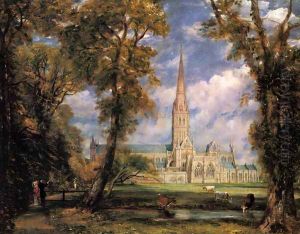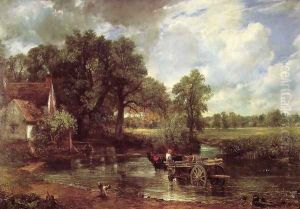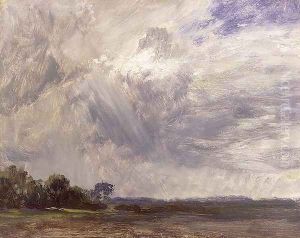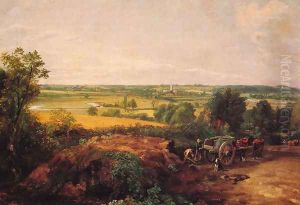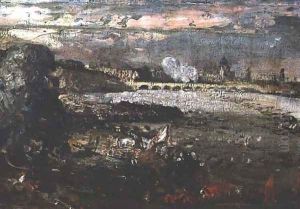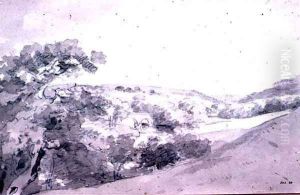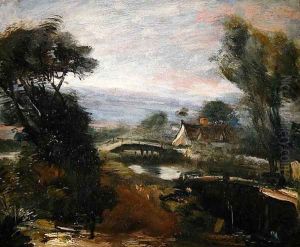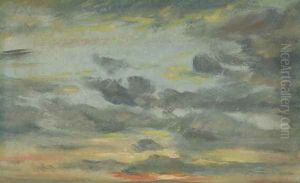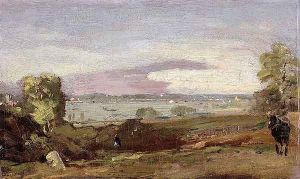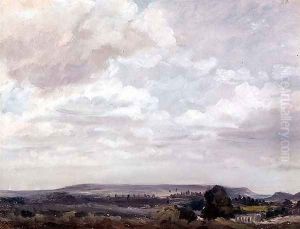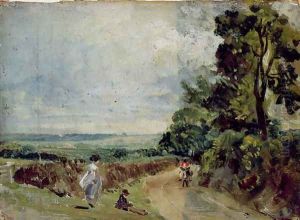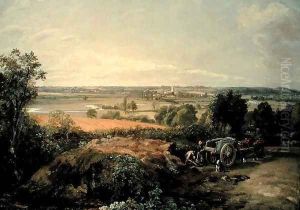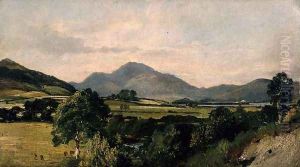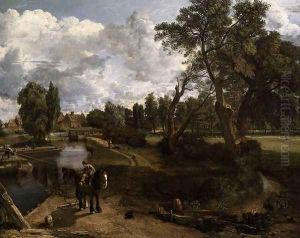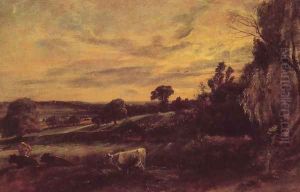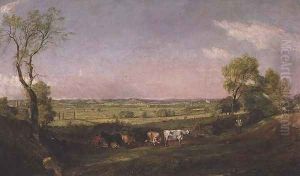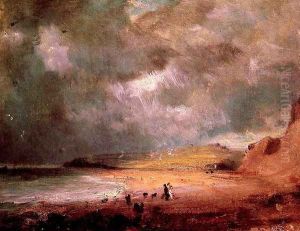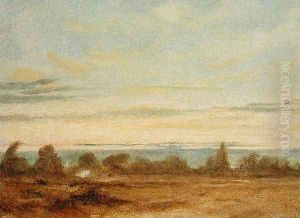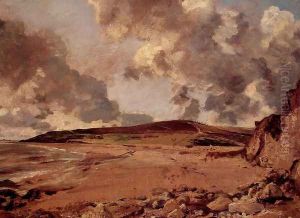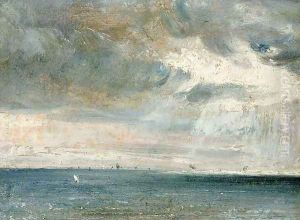John Constable Paintings
John Constable was an English Romantic painter. Born on June 11, 1776, in East Bergholt, a village on the River Stour in Suffolk, he is known primarily for his landscape paintings of Dedham Vale, the area surrounding his home—now known as 'Constable Country'—which he invested with an intensity of affection. His most famous paintings include 'Dedham Vale' (1802) and 'The Hay Wain' (1821). Unlike many of his contemporaries, Constable never left England, insisting that there was enough beauty in his native land to last a lifetime.
Constable was brought up in a prosperous family, his father being a wealthy corn merchant. He initially worked in the family business, but his love for art eventually led him to pursue a career in painting. He entered the Royal Academy Schools in 1799, although he was more influenced by the work of older masters like Claude Lorrain and Jacob van Ruisdael than by his instructors.
Throughout his career, Constable devoted himself to painting the English countryside, often returning to the same spots to capture the changing light and seasons. He worked extensively in the open air, sketching in oils and making full-size preparatory sketches for his larger canvases—a practice not common at the time.
Constable struggled for recognition in his early career. He sold works and exhibited at the Royal Academy but did not achieve significant acclaim until his forties. His work received more praise in France than in his home country, influencing the Barbizon School and the Impressionist movement. It was not until the 1829 exhibition of 'The Hay Wain' in France and its subsequent gold medal at the Salon that Constable gained substantial recognition.
Constable's approach to painting with quick, broken brushstrokes was innovative for his time and prefigured the techniques of the Impressionists. He believed in painting nature as he saw it and is quoted as saying, 'I never saw an ugly thing in my life: for let the form of an object be what it may, light, shade, and perspective will always make it beautiful.'
Despite his later success, Constable's personal life was marked by tragedy and loss. His wife, Maria Bicknell, whom he married in 1816 after a long courtship, died of tuberculosis in 1828, leaving Constable to care for their seven children.
John Constable died on March 31, 1837, in Hampstead, London. Although he did not enjoy widespread popularity during his lifetime, his work has since come to be celebrated for its raw beauty and emotional power. Today, John Constable is regarded as one of the leading figures in the English landscape tradition and a pioneer in the naturalistic portrayal of the environment.
